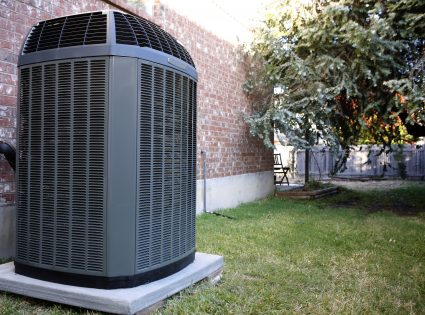
Question: I am an agent who recently listed a home with a brand new air conditioning unit. They financed the air conditioning system with a HERO loan. What is that, and what do I need to know?
Answer: PACE, which stands for “Property Assessed Clean Energy” is a program to provided financing for homeowners to install permanently affixed energy-efficient and water-saving upgrades, that are then repaid through the homeowner’s property tax bill.
The HERO program stands for “Home Energy Renovation Opportunity”, and is a program to provide the financing for the PACE program in some areas. HERO is the largest PACE program in California.
The HERO program works with the homeowner and pre-approved and registered contractors, to make improvements to homes, such as solar energy, energy efficient windows, air conditioning and water heating systems and roofs.
The homeowner through the HERO program can then finance through their property taxes all or part of the expense of the improvements.
What does this mean to you, as a listing agent? It means first of all, that the property taxes for a home with a HERO loan are going to be higher than normal for the area the home is in. The Hero Loan payment will be in addition to the normal assessed taxes, but included in the same bill. This will need to be disclosed to potential buyers.
A HERO loan can impact the financing of a home. Some mortgage loan programs (including VA and FHA loans), will finance homes with HERO loans, others may require that the HERO loan be paid in full. Because the HERO loan increases the monthly property tax calculations made by a lender, it could impact a buyer’s ability to qualify for a new loan.
A prospective buyer may request that the seller pay the HERO loan in full, so that it will not be included in the buyer’s property taxes going forward, and some buyers may agree to keep the loan in place.
As the listing agent, a little due diligence will help your seller be ready to negotiate with prospective buyers.
Ask your seller how much was financed, and over what period of time.
Find out the amount of the HERO loan payments. You can do this by getting a tax roll print out provided by the title company. The tax roll will itemize the different components of the property tax bill on the particular home. The tax bill can include the “ad valoram” or Prop 13 taxes, direct assessments like bonds or landscape maintenance districts or “Mello Roos” Community Facilities Districts, and HERO loans. The HERO loan amount will not be impacted by the sale, but will remain the same if the seller does not pay it off.
Finally, it might be a good idea to determine the outstanding balance of the HERO loan, in case a buyer asks for it to be paid in full.

Cynthia Moller
661.362.0400
cmoller@glenoaksescrow.com



